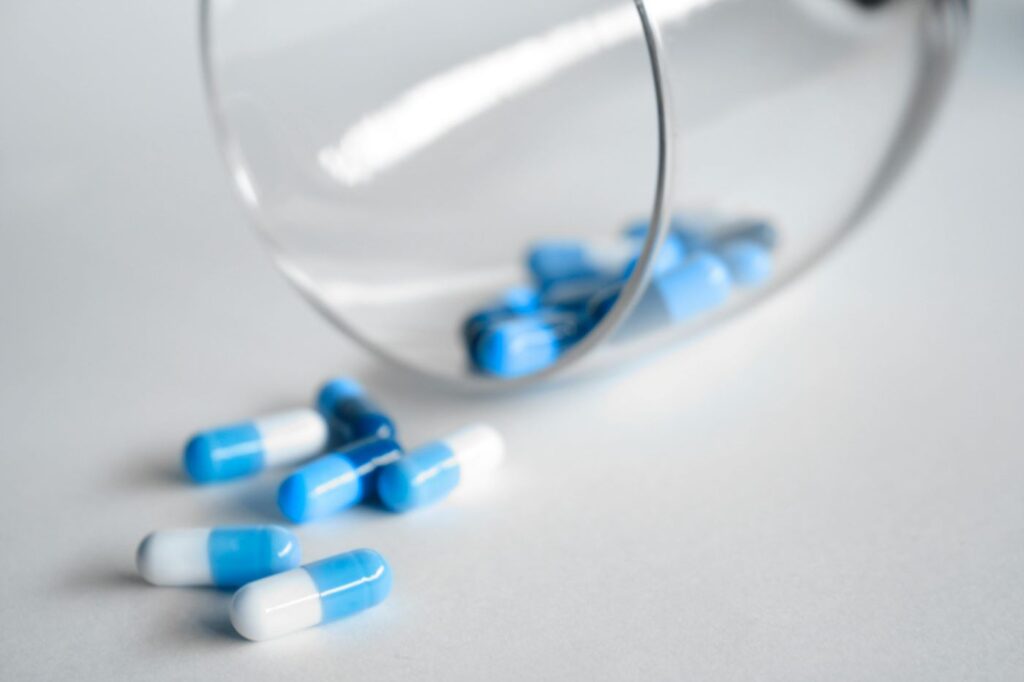Health
How to Combat Fatigue from Antibiotics
When you take antibiotics, they not only target and remove bad bacteria, but they also have an impact on your body’s beneficial flora.
After taking antibiotics, many people develop fatigue. It might leave you exhausted, depleted, and without vitality. To effectively manage chronic weariness, you must first understand what causes it and how it affects your general well-being.
This interruption in the natural equilibrium of microorganisms might cause weariness. Antibiotics can also induce inflammation and decrease your body’s capacity to absorb nutrients, contributing to tiredness.
This article delves into effective strategies on how to combat fatigue from antibiotics. We’ll explore the reasons behind antibiotic-induced fatigue, discuss lifestyle adjustments, dietary choices, and supplements that can help boost energy levels, and provide practical tips for managing fatigue while undergoing antibiotic treatment.
By understanding these strategies, individuals can better cope with antibiotic-related fatigue and maintain their overall well-being during the healing process.
Causes of Fatigue from Antibiotics
There are various things that can cause fatigue after taking antibiotics. One of the primary causes is a change in the gut microbiome. The gut microbiome contains billions of microorganisms that are essential for digestion, food absorption, and overall health. Antibiotics can disrupt the gut microbiota and cause fatigue when they kill both dangerous and beneficial microorganisms.
The effects of antibiotics on the liver might also contribute to weariness. Antibiotics are broken down by the liver, which might impose additional pressure on the body. Overworked livers might impair their ability to cleanse the body and cause weariness.

Common Antibiotics that May Cause Fatigue
While weariness can occur after taking any antibiotic, some antibiotics are more likely to induce this adverse effect. Fluoroquinolones, including ciprofloxacin and levofloxacin, have been linked to an increased risk of weariness. These antibiotics are frequently used for more serious infections and can have a considerable effect on energy levels.
Macrolide antibiotics, such as azithromycin and clarithromycin, are also linked to weariness. These antibiotics are often used to treat respiratory tract infections, and one of its adverse effects is weariness.
Tips for Managing Fatigue from Antibiotics
Although the effects of antibiotics can be difficult to manage, there are numerous ways that can be used to effectively counteract it. Here are some suggestions to help you regain energy:
- Prioritize Rest: Allow yourself ample time to rest and recover. Fatigue is your body’s way of indicating that it needs additional rest to heal and restore its energy levels. Listen to your body and give it the rest it requires.
- Eat a Balanced Diet: Focus on consuming nutrient-dense foods that provide essential vitamins and minerals. Include plenty of fruits, vegetables, whole grains, and lean proteins in your diet. Avoid processed foods and sugary snacks that can further deplete your energy levels.
- Stay Hydrated: Dehydration can exacerbate fatigue, so make sure to drink enough water throughout the day. Aim for at least eight glasses of water daily to keep your body hydrated and energized.
- Incorporate Light Exercise: Engaging in gentle exercise, such as walking or yoga, can help boost your energy levels. Avoid intense workouts that may further drain your energy and opt for activities that promote relaxation and gentle movement.
- Practice Stress-Reduction Techniques: Chronic stress can contribute to fatigue. Incorporating stress-reducing activities into your routine, such as meditation, deep breathing exercises, or mindfulness practices, can help improve your overall vitality and combat fatigue.

Natural Remedies for Combating Fatigue from Antibiotics
In addition to lifestyle changes, there are natural remedies that can help alleviate fatigue caused by antibiotics. These remedies can assist in replenishing the good bacteria in your gut and support your body’s recovery process. Consider incorporating the following into your routine:
- Probiotics: Probiotics are beneficial bacteria that can help restore the gut’s natural equilibrium. They are available as supplements or in fermented foods such as yogurt, kefir, and sauerkraut. Adding probiotics to your regular routine can help restore the healthy bacteria in your gut and reduce fatigue.
- Ginger: Ginger is known for its anti-inflammatory and digestive benefits. It can help decrease fatigue symptoms by lowering inflammation and improving nutrition absorption. Consider incorporating ginger into your diet by making teas, smoothies, or adding it to meals.
- Ashwagandha: Ashwagandha is an adaptogenic plant that has been used for millennia to relieve fatigue and boost energy. It helps the body adapt to stress and supports general health. Ashwagandha can be found in supplement form or as a powdered herb that can be included into smoothies or hot beverages.
Lifestyle Changes to Reduce Fatigue while Taking Antibiotics
Making certain lifestyle changes can significantly reduce fatigue while taking antibiotics. These changes can support your body’s healing process and help you regain your energy levels. Consider the following lifestyle adjustments:
- Establish a Sleep Routine: Ensure you get enough quality sleep each night by establishing a regular sleep routine. Aim for seven to eight hours of uninterrupted sleep and create a relaxing bedtime routine to promote better sleep quality.
- Manage Stress: Stress can worsen fatigue, so it’s important to find effective ways to manage it. Engage in activities that help you relax, such as reading, taking baths, or spending time in nature. Find what works best for you and make it a priority to incorporate stress-reducing activities into your daily life.
- Avoid Alcohol and Caffeine: Alcohol and caffeine can disrupt your sleep patterns and exacerbate fatigue. Limit your intake of these substances, especially close to bedtime, to promote better sleep and overall energy levels.

Foods to Eat and Avoid to Combat Fatigue from Antibiotics
Your diet plays a crucial role in combating fatigue caused by antibiotics. Certain foods can help replenish your energy levels, while others can further drain your energy. Here are some guidelines to follow:
Foods to Eat:
- Lean Proteins: Choose lean proteins like chicken, fish, tofu, and lentils. These supply vital amino acids for muscle repair and energy generation.
- Colorful Fruits and Vegetables: Include a range of vibrant fruits and veggies in your diet. They are high in antioxidants, vitamins, and minerals, which assist to reduce inflammation and increase energy levels.
- Whole Grains: Opt for whole grains such as brown rice, quinoa, and oats over refined grains. Whole grains give continuous energy and are high in fiber, which helps with digestion and nutritional absorption.
- Healthy Fats: Include healthy fats in your diet, such as avocados, almonds, and olive oil. These fats provide a steady release of energy and promote brain health.
Foods to Avoid:
- Processed Foods: Processed foods are often high in added sugars, unhealthy fats, and artificial ingredients. These can lead to energy crashes and worsen fatigue. Limit your intake of processed foods and opt for whole, unprocessed options whenever possible.
- Sugary Snacks and Drinks: Sugary snacks and drinks may provide a temporary energy boost, but they often lead to a subsequent crash. Reduce your consumption of sugary treats and opt for healthier alternatives like fresh fruits or homemade snacks.

Supplements that May Help with Fatigue from Antibiotics
Supplements can be a helpful addition to your routine when combating fatigue caused by antibiotics. However, it’s important to consult with a healthcare professional before starting any new supplements. Here are some supplements that may help alleviate fatigue:
- B Vitamins: B vitamins play a crucial role in energy production. Taking a B-complex supplement can help support your body’s energy levels and combat fatigue.
- Iron: Iron deficiency can lead to fatigue. If you’re experiencing prolonged fatigue, it may be worth considering an iron supplement. However, it’s important to have your iron levels tested before starting supplementation.
- Magnesium: Magnesium is involved in numerous processes in the body, including energy production. Supplementing with magnesium can help improve energy levels and reduce fatigue.
When to Consult a Healthcare Professional about Fatigue from Antibiotics
While fatigue is a common side effect of antibiotics, it’s important to know when to consult a healthcare professional. If your fatigue persists or worsens, it may be a sign of an underlying issue or an adverse reaction to the medication. Seek medical advice if:
- Your fatigue is severe and debilitating.
- Your fatigue is accompanied by other concerning symptoms.
- Your fatigue lasts longer than expected or doesn’t improve with time.
- You experience any unusual or severe side effects from the antibiotics.
A healthcare professional will be able to evaluate your symptoms, determine the underlying cause, and provide appropriate guidance and treatment.
Conclusion
Antibiotics might cause fatigue, but by using these tactics, you can efficiently manage it and regain your energy. Focus on your general health and well-being, replenish the beneficial bacteria in your stomach, and make any required lifestyle changes.
Incorporate nutrient-dense foods, try natural therapies, and seek medical advice if necessary. Don’t allow exhaustion hold you back; take control of your health and well-being today.
Trusted Health, Wellness, and Medical advice for your well-being



